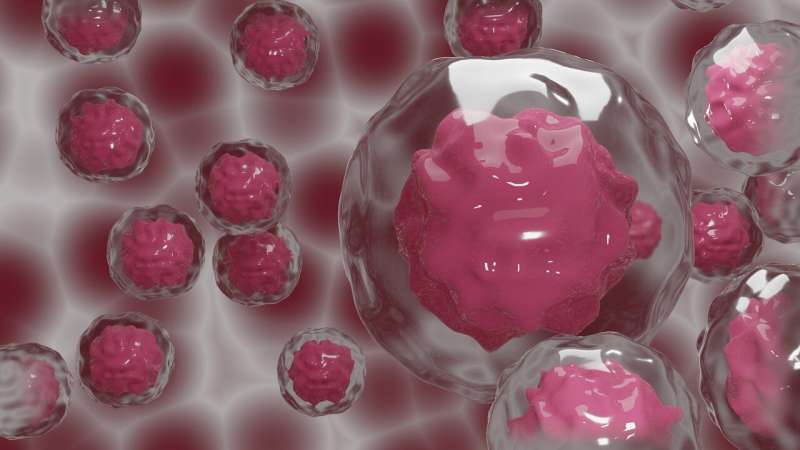#Removing microRNAs from triple-negative breast cancer cells can reverse its spread

“#Removing microRNAs from triple-negative breast cancer cells can reverse its spread”

A new study led by the University of Westminster shows that removing small genetic parts of our genomes called microRNAs from triple negative breast cancer cells can reverse its spread.
The study, published in the International Journal of Molecular Sciences, also identified that microRNAs could be targeted for early detection and treatment of triple negative breast cancer.
microRNAs (miRs) are small genetic materials that play important roles in cellular signaling and can have a major impact on how cancer progresses and spreads, known as metastasis.
This research study identified that the amount of a major cancer related microRNA, miR-21, is increased in triple negative breast cancer and is also linked to metastasis.
The researchers then used a genome editing method (CRISPR/Cas9) to remove the miR-21 out of the cancer cells and found that the metastatic features of the cells were reversed. In addition, these gene-edited cells released fewer extracellular vesicles, which are small lipid blobs released from cells and play important roles in cancer spread.
The team also found that less of the harmful miR-21 was carried inside the vesicles of the gene edited cells, and this may play a major role in cancer spread as these vesicles carry important disease related molecules to neighboring cells.
Dr. Pinar Uysal-Onganer, lead researcher from the University of Westminster, said: “This is an important study which contributes to better understanding of roles of miRs in aggressive cancer types such as triple negative breast cancer. We are now aiming to clarify the relationships between miR-21 and cancer drug resistance, which is another important factor that limits cancer cure.”
According to the Breast Cancer Now statistics, breast cancer is the most common cancer in women in the UK with one woman diagnosed every 10 minutes.
Triple-negative breast cancer is considered the most aggressive type of breast cancer and also has very poor prognosis, mainly because there are fewer targeted medicines to treat it, compared with other types of breast cancer.
Studies have shown that triple-negative breast cancer is more likely to spread beyond the breast to other parts of the body and more likely to come back after treatment.
About 10-20% of breast cancers are triple-negative, and therefore it is crucial to find better diagnostic and therapeutic targets for this subtype of breast cancer.
Researchers discover potential new therapy for chemotherapy-resistant breast cancer
Elif Damla Arisan et al. MiR-21 is Required for the Epithelial–Mesenchymal Transition in MDA-MB-231 Breast Cancer Cells, International Journal of Molecular Sciences (2021). DOI: 10.3390/ijms22041557
Provided by
University of Westminster
Citation:
Removing microRNAs from triple-negative breast cancer cells can reverse its spread (2021, February 5)
retrieved 5 February 2021
from https://medicalxpress.com/news/2021-02-micrornas-triple-negative-breast-cancer-cells.html
This document is subject to copyright. Apart from any fair dealing for the purpose of private study or research, no
part may be reproduced without the written permission. The content is provided for information purposes only.
If you liked the article, do not forget to share it with your friends. Follow us on Google News too, click on the star and choose us from your favorites.
For forums sites go to Forum.BuradaBiliyorum.Com
If you want to read more Like this articles, you can visit our Science category.


